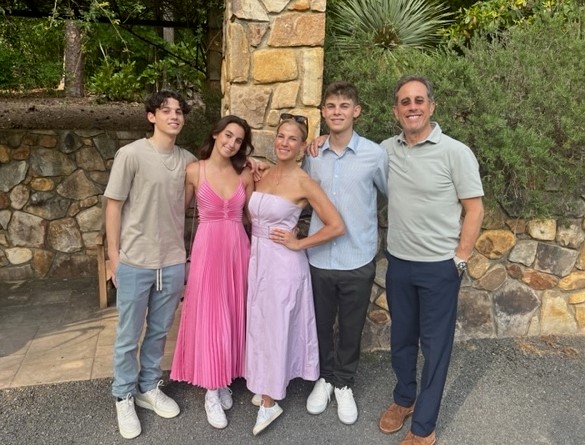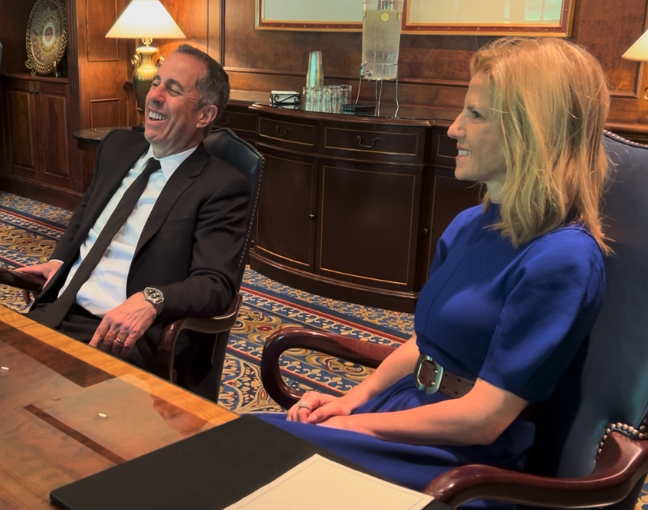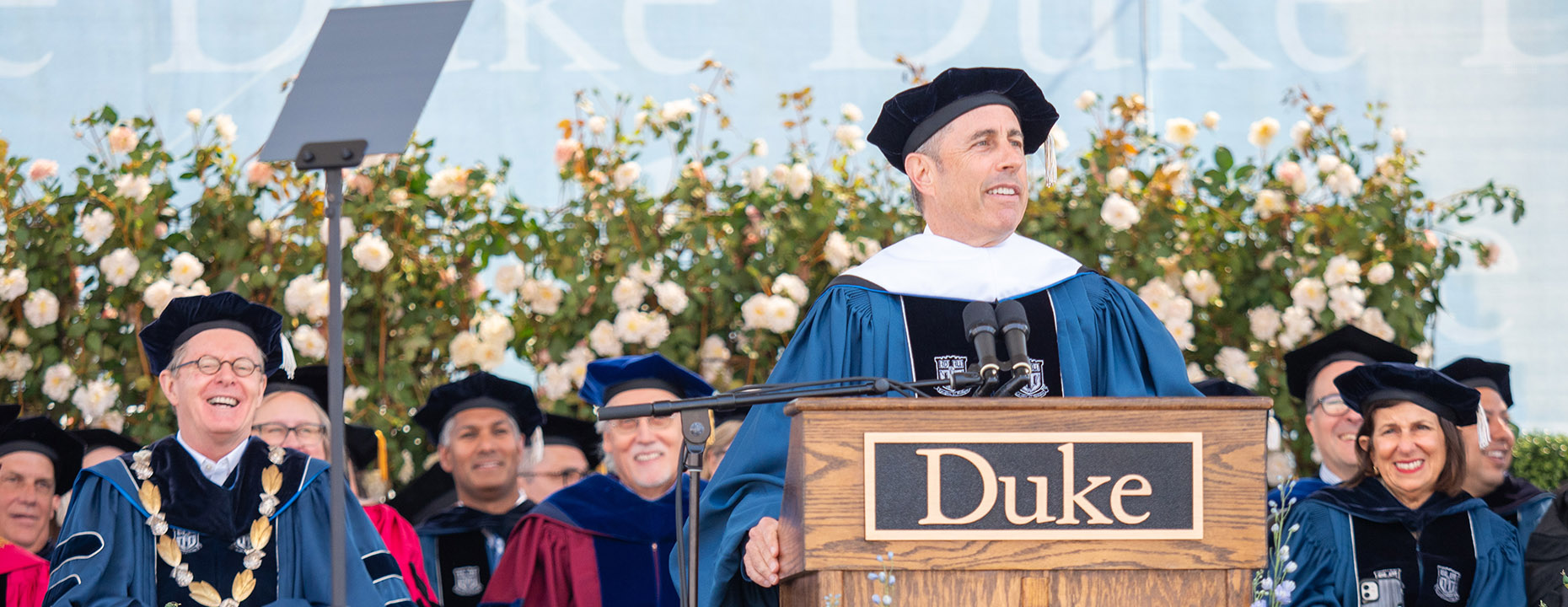Duke’s 2024 commencement was highlighted by comedian Jerry Seinfeld’s address to graduates, in which he urged them to remember to laugh and navigate life with humor.
“Humor is the most powerful, most survival-essential quality you will ever have or need to navigate through the human experience,” he said. He would know.
Seinfeld and his wife, Jessica, are the parents of current Duke students Julian and Shepherd and Duke alumna Sascha and, like many parents, they have become involved in activities at Duke. The couple serve as chairs of the Duke Parents Committee, the premier volunteer opportunity for non-alumni parents at Duke.
After commencement, the Seinfelds spent 15 minutes with DukeMag writer Scott Huler.
DukeMag:
You're doing all this volunteering for Duke. Talk to me about how you made that decision.
Jessica:
Well, neither of us went to a school of this magnitude. And I think once you come here and experience the energy on campus, you meet professors, or you hear from administrators, you see the level of quality that you're dealing with. It feels like such a wasted opportunity not to get involved, you know, in any way that feels comfortable to you. I ended up going to graduate school [at New York University] right after our first child started here because I was so impressed and excited about being in an academic environment again.

DukeMag:
Several years ago, you guys attended a class taught by ethics professor John Rose that your daughter, Sascha, was enrolled in. How did that come about?
Jessica:
Sascha loved that class so much, and the topic was very appropriate to [Jerry], which was how humor is critically important in this very polarized political environment these days. And so I think it was a very easy connection for her to make that her father believes wholeheartedly in how humor is exactly what we need right now. And so I think it was her idea that Jerry would go speak to the class. So, yeah, that was her idea.
DukeMag:
Two out of three of your kids have come to Duke and your third starts in the fall. Tell me how you guys as a family came to that conclusion that this is where they needed to be.
Jerry:
I was doing a show here some years ago and – way before we were even starting to think about colleges – I just looked at the university from the road. And I just thought that place looks nice. And Jess is much more well versed in all these schools and what their strengths and weaknesses are. But I just had a feeling about it. And the funny thing is, it turned out to be right. It is what it seems to be. There are standards to it that are exceptional, but there's a warmth to it that I think we both responded to. That combination of a healthy environment, and a rigorous environment, we thought was rare and special. And then the more time we spent the more we liked it.
Jessica:
And it seems that family is a very big thing here. I think they just love families. And there are generations of families that have come to this school. So it felt very obvious to us that our second [child] would come here, because we loved it so much. And he looked around – he thought he was going to go somewhere else – and it ended up feeling like this is where my family belongs. And our third is coming in the fall. Class of 2028. And so he also did the exercise of no, I'm not going to go to Duke, I'm going to go somewhere else. And then in the end, he realized this is what our family does, we go to Duke. And that's it. We have no more except our cats.
DukeMag:
Duke could teach the cats.
Jerry:
They don't really offer a feline degree.

DukeMag:
You have talked about pursuing mastery and described what you do as being work. How do you get across to people that what you're doing is work and you're working on it all the time?
Jerry:
It's somewhat of an Eastern philosophical concept. And I tried to make the point today in the commencement to enjoy the experience of tremendous effort and try to become a little less attached to the outcome – it can be good or bad. That's going to be OK. The enjoyment and the richness, I think, of human endeavor is in making quality effort.
DukeMag:
One of the things you did that I really enjoyed was the movie about getting back into stand-up after the “Seinfeld” show. I thought it was a really intimate portrait of “this is hard – I’m going to do it again.” How did you decide to let people in to see the difficulty of that?
Jerry:
Well, it was 25 years ago, but somebody else said this would be something interesting for people to watch. And I thought, oh, OK. I didn't really see it. But I think it ended up being something that comedians starting out found interesting. Because they didn't realize that the struggle is kind of the same from the beginning – at whatever level you're at.
DukeMag:
You recently said in an interview that disorientation has replaced the movie business. Talk to me about that.
Jerry:
It's kind of a joke. I just meant that what I used to hear in conversation with, let’s say, creative people was, “Hey, did you see this movie. Did you see that movie? What do you think?” And now what I hear creative people talking about is, “I'm not sure what to do next.” So that's what I meant. The subject I hear discussed most often is disorientation in the creative community. “What are we supposed to be doing? Should we take the money? Or should we not do the project?” So that's what I meant by it. But I was really trying to be funny. Well, it was fine. Nobody's gonna go, “Let's be disoriented instead of going to a movie.”
DukeMag:
The last question is one that I have taken to asking most people I interview: How are we to live?
Jerry:
That's pretty broad. I would say ethically, and with forgiveness. I'm trying to be as broad as the question. That would be my answer.
Jessica:
That's with integrity and with real true friends.
DukeMag:
Those are great answers. Thanks so much for being with us.

